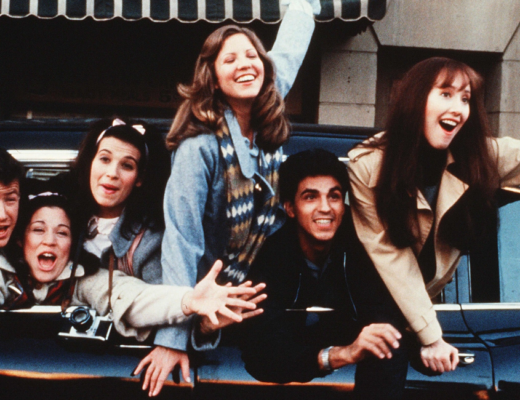It’s become a cliche to point out the cliche of the arthouse festival darling that amounts to essentially two hours of a marginalized person getting pushed down into grimmer and grimmer circumstances until suddenly a happy ending is pulled out of nowhere. But uninspired filmmaking often begets uninspired commentary, so here we are with Inshallah A Boy, the first film by Amjad Al-Rasheed and Jordan’s submission for this year’s Oscars. It’s a film in love with the suffering of its protagonist, and if softcore misery porn is for you, so be it — you’ll probably love it. If not, it might feel more like one long shoulder shrug.
It’s not five minutes into the film before Nawal, a working-class nurse in Amman, finds her husband lying dead in bed after a stroke, leaving her alone to take care of their daughter, Nora (Celina Rabab). Since Nawal never had a male child, her husband’s brother, Rifqi (Hitham Omari), can claim half of the inheritance. So begins a long process of domestic arguments and court appearances where Nawal’s agency is constantly diminished by one bureaucrat and family member after another as Rifqi tries to kick her out of her apartment so that he can sell it. Desperate for a way to hold on to what’s hers, Nawal eventually fakes her own pregnancy to demand that they withhold any decisions on the inheritance for 9 months until they can see whether it’s a boy or not. Not that that really solves anything, of course — it simply makes her situation even more desperate, futile, and hopeless as she now struggles maintain her front and come up with a solution before she runs down the clock.
It’s a simple enough story that does well to illuminate the social and economic ills plaguing women in Jordan. Everywhere Nawal turns there seems to be a man waiting in the wings to make her and her female co-stars miserable. From her husband’s economic irresponsibility to Rifiqi’s greediness to her own brother’s growing frustration toward her independence to her boss’s abusive, womanizing husband, Al-Rasheed draws out the many ways in which a patriarchal culture oppresses and dehumanizes women at every turn. Even the one man who might offer a glimmer of hope to Nawal, a relentlessly flirty coworker who offers to lend her money and teach her how to drive, constantly toes the line between being a self-interested heel and a genuinely concerned potential partner.
It’s an engaging and worthwhile story told with an keen sense of pacing and performance, but at the same time it can be a little dispiriting as a critic watching another festival film that has so little concern for mise-en-scène. Everything is shot handheld with the subtle shake of the camera operator serving as a lazy, CliffsNotes way of conveying intimacy with the characters. Al-Rasheed is effective at drawing forth the dramatic circumstances of his story and building performances that feel very alive, but the lack of aesthetic intention also turns into a lack of nuance the longer the film goes on. Without visual variety, we’re left as simple spectators of Nawal’s misery, shaking our heads and tsk-tsking as every scene pushes Nawal further into abjection, but never asked to engage with the text more than that.
Ultimately, that’s the essential problem with the film. Inshallah A Boy is in many ways a very good movie that will certainly please its audience and that deserves to be seen widely for many reasons, but that begs a further question: why should a film so focused on conveying misery and social injustice be so eager to please viewers? It’s more than a little frustrating when at the end of the movie, after spending two hours watching Nawal’s situation spiral down into ever more dire circumstance, a happy ending is suddenly spun out of nowhere and Nawal becomes so flush with empowerment that she even slaps a catcaller on the street. Inshallah A Boy wants to mire in the dismal circumstances of women in Jordan, but doesn’t want to leave us feeling down. It asks us to root for the underdog, only to show us that they’re actually the home team. But no one wants to leave a movie feeling genuinely like crap; audiences don’t want it, festivals don’t want it, and filmmakers relying on government grants don’t want it. What they do want is to make you feel good about yourself and better about all the little bad parts of the world at the same time. According to these metrics, anyway, Inshallah A Boy definitely delivers.
DIRECTOR: Amjad Al-Rasheed; CAST: Mouna Hawa, Haitham Alomari, Yumma Marwan, Salwa Nakkara; DISTRIBUTOR: Greenwich Entertainment; IN THEATERS: January 12; RUNTIME: 1 hr. 53 min.







